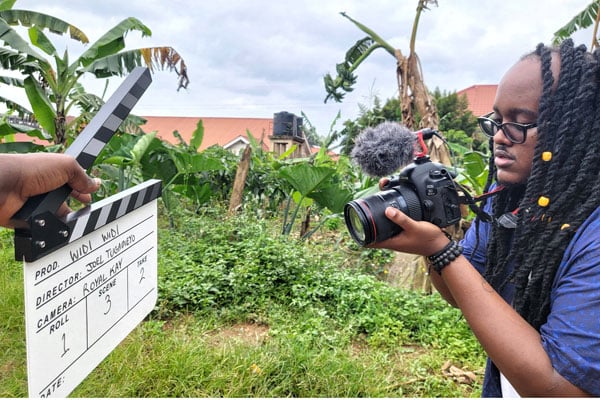Prime
IGG Kamya goes for lifestyle audit to catch govt thieves

The new Inspector General of Government, Ms Beti Kamya. PHOTO/DAVID LUBOWA
What you need to know:
- IGG Beti Kamya said her vision is to quickly reverse the massive theft in public offices by making citizens know that the cost of corruption is why they cannot have the services they pay for.
The office of Inspector General of Government (IGG) plans to adopt lifestyle audit to catch corrupt public officials in the next five years.
IGG Beti Kamya said her vision is to quickly reverse the massive theft in public offices by making citizens know that the cost of corruption is why they cannot have the services they pay for.
“We want to exhibit the faces of corruption in every classroom, living room place of worship, entertainment and every bedroom so that everybody can recognise it,” she said.
Ms Kamya, who was meeting the European Union (EU) delegation led by Ambassador Attilio Pacifici in Kampala on Thursday, cited the case of multi-billion property confiscated by the court from Geoffrey Kazinda and forfeited to government.
Ms Kamya said in the lifestyle audit, the IGG would push for even primary school children to recognise illicit wealth at home and ask their parents whether their salary can afford the new expensive car, luxurious houses, overseas schools and holidays they enjoy abroad.
“We want teachers in posh schools to give home work to their 10-year-olds in 5th Grade to write down their fathers name, place of work, job title, and car they drive and its cost, a picture of their houses and discuss it openly in class,” she said.
Ms Kamya said she also wants adults and children to start being embarrassed and ashamed of their unexplainable wealth.
“We value our engagement with the Speaker of Parliament Jacob Oulanyah and ask for support to rally MPs in the fight and we intend to engage the Prime Minister, the Chief Justice and the Leader of Opposition in Parliament,” she added.
Findings
Ms Kamya said preliminary findings show that Uganda is losing Shs20 trillion annually to corruption, which totals our entire annual revenue collection from taxes.
“It is criminal that poor Ugandan break their backs to work and pay taxes, but very few people take it all for themselves to live luxurious lifestyle and have massive wealth that they cannot consume in their lifetime,” she said.
Ms Patricia Achan, the deputy IGG, said through the Leadership Code Act, they will raise the verification activity, beginning with the staff of the IGG, then verify wealth declaration of all accounting officers.
“The intention is to rescue at least 20 percent of the Shs20 trillion lost per year,” she said.
“We need to give corruption a face, unmask and expose its face so that everybody can recognise it. It will incite Ugandan to despise it, hate and avoid it,” she said.
Ms Cissy Kagaba, the executive director of Anti-Corruption Coalition Uganda, said adopting the lifestyle audit was a good measure, but the IGG should capture every one and not pick on only a few individuals.
“After the lifestyle auditing, we want to know what next because people often make declarations, but the issue of verification has been a challenge,” she said.
About lifestyle audit
Lifestyle audits, also known as lifestyle checks or lifestyle monitoring, are an accountability tool that can be used to detect and prevent corruption. Such audits are conducted when the visible lifestyle or standard of living of an individual appears to exceed their known income level. The detection of such discrepancies can raise the red flag, warranting closer inspection.
In such instances, an assessment of the individual’s income, assets and investments can be undertaken to determine if such seemingly extravagant expenditures could have come from illicit gains. If the audit shows a mismatch between a person’s known income and assets compared to their lifestyle and spending patterns, then there is an increased risk that the person is deriving alternative income from sources that constitute a conflict of interest or illegal activity, including embezzlement and bribery.
As verification often includes assessments of an official’s household, the approach is particularly helpful in detecting whether corrupt proceeds could have been under the names of family members or associates.
Lifestyle audits are best used in conjunction with other anti-corruption measures, including the criminalisation of illicit enrichment, establishing obligations for regular declarations of assets, incomes and interests, as well as unexplained wealth orders.
However, the viability of this approach is contingent on public access to the content of asset and income declarations, and the interest and ability of civil society to engage in lifestyle audits concealed.
Source: Transparency International




